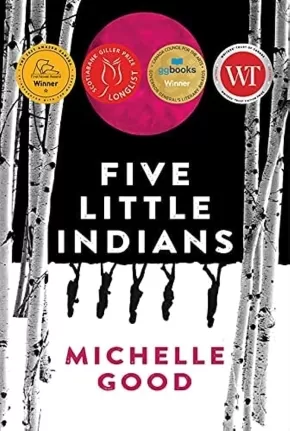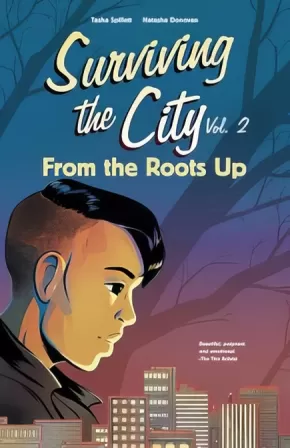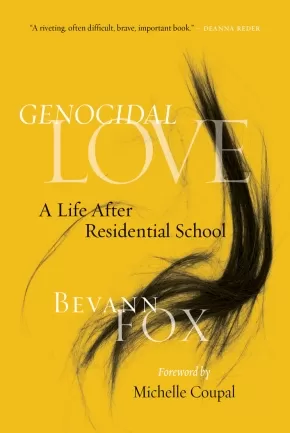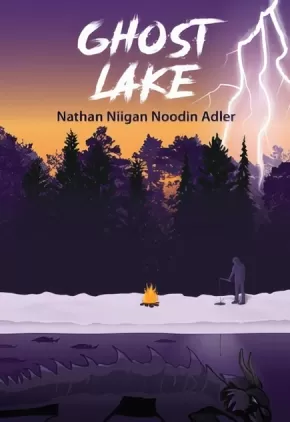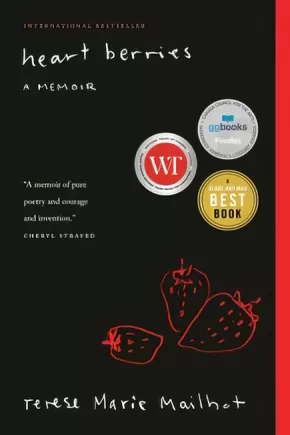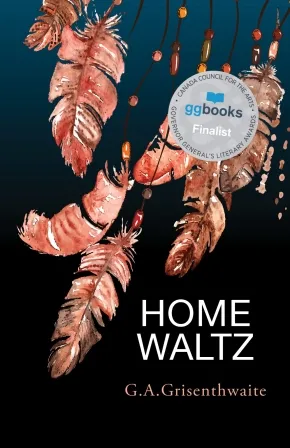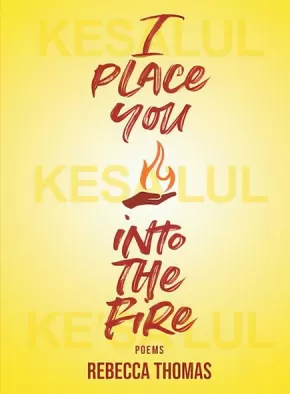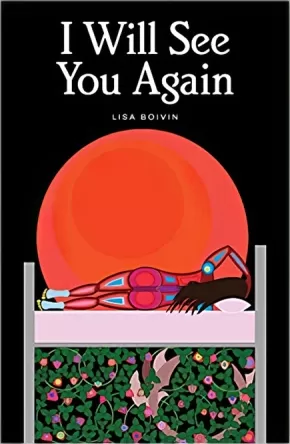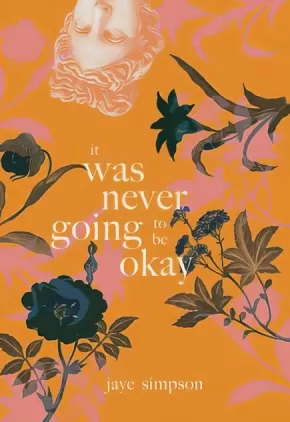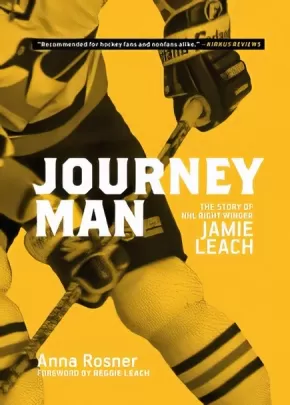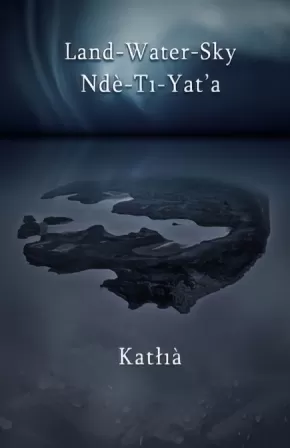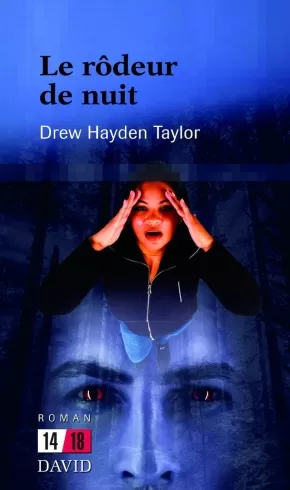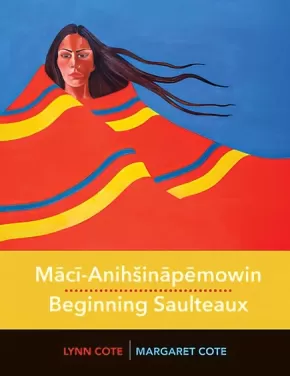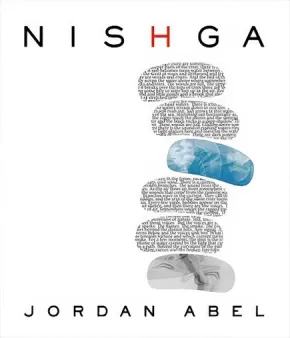
First Nations
346
-
360
of
653 Results;
Sort By
Go To
of 44
Five Little Indians
$22.99
Format:
Paperback
Text Content Territories:
Indigenous Canadian;
Reading Level: N/A
ISBN / Barcode: 9781443459181
Synopsis:
Synopsis:
Taken from their families when they are very small and sent to a remote, church-run residential school, Kenny, Lucy, Clara, Howie and Maisie are barely out of childhood when they are finally released after years of detention.
Alone and without any skills, support or families, the teens find their way to the seedy and foreign world of Downtown Eastside Vancouver, where they cling together, striving to find a place of safety and belonging in a world that doesn’t want them. The paths of the five friends cross and crisscross over the decades as they struggle to overcome, or at least forget, the trauma they endured during their years at the Mission.
Fuelled by rage and furious with God, Clara finds her way into the dangerous, highly charged world of the American Indian Movement. Maisie internalizes her pain and continually places herself in dangerous situations. Famous for his daring escapes from the school, Kenny can’t stop running and moves restlessly from job to job—through fishing grounds, orchards and logging camps—trying to outrun his memories and his addiction. Lucy finds peace in motherhood and nurtures a secret compulsive disorder as she waits for Kenny to return to the life they once hoped to share together. After almost beating one of his tormentors to death, Howie serves time in prison, then tries once again to re-enter society and begin life anew.
With compassion and insight, Five Little Indians chronicles the desperate quest of these residential school survivors to come to terms with their past and, ultimately, find a way forward.
Awards
- Amazon Canada First Novel Award
- 2020 Governor General's Literary Award for English-language fiction
- 2022 Canada Reads Winner
Educator Information
Winner of the 2018 HarperCollins/UBC Price for Best New Fiction, Michelle Good's Five Little Indians is told from alternating points of view of five former residential school students as they struggle to survive in 1960s Vancouver.
Additional Information
304 pages | 6.00" x 9.00"
From the Roots Up: Surviving the City Vol. 2
$21.95
Artists:
Format:
Paperback
Text Content Territories:
Indigenous Canadian; First Nations; Anishinaabeg; Cree (Nehiyawak);
ISBN / Barcode: 9781553798989
Synopsis:
Synopsis:
Dez and Miikwan’s stories continue in this sequel to Surviving the City.
Dez’s grandmother has passed away. Grieving, and with nowhere else to go, she’s living in a group home. On top of everything else, Dez is navigating a new relationship and coming into her identity as a Two-Spirit person.
Miikwan is crushing on the school’s new kid Riel, but doesn’t really understand what Dez is going through. Will she learn how to be a supportive ally to her best friend?
Elder Geraldine is doing her best to be supportive, but she doesn’t know how to respond when the gendered protocols she’s grown up with that are being thrown into question.
Will Dez be comfortable expressing her full identity? And will her community relearn the teachings and overcome prejudice to celebrate her for who she is?
Educator & Series Information
Recommended for ages 12 to 18.
This is the second volume in the Surviving the City graphic novel series, which is also part of the Debwe Series.
Surviving the City is a contemporary graphic novel series about young Indigenous women navigating their way in an urban environment. It includes these books:
Surviving the City
From the Roots Up
We Are the Medicine
A Teacher Guide is available: Surviving the City Teacher Guide: Exploring Identity, Allyship, and Social Action for Meaningful Change in Grades 7-12
Additional Information
64 pages | 6.50" x 10.00"
Genocidal Love: A Life after Residential School
$21.95
Text Content Territories:
Indigenous Canadian; First Nations; Cree (Nehiyawak);
Grade Levels: 12; University/College;
ISBN / Barcode: 9780889777415
Synopsis:
Synopsis:
How can we heal in the face of trauma? How can we transform intergenerational pain into a passion for community and healing?
Presenting herself as “Myrtle,” residential school survivor and Indigenous television personality Bevann Fox explores essential questions by recounting her life through fiction. She shares memories of an early childhood filled with love with her grandparents—until she is sent to residential school at the age of seven. Her horrific experiences of abuse there left her without a voice, timid and nervous, never sure, never trusting, affecting her romantic relationships and family bonds for years to come.
This is the story of Myrtle battling to recover her voice. Genocidal Love is a powerful confirmation of the long-lasting consequences of residential school violence —and a moving story of finding a path towards healing.
Awards
- 2021 Indigenous Voices Awards winner for Published Prose in English: Creative Nonfiction and Life-Writing
Reviews
“A riveting, often difficult, brave, important book. ” —Deanna Reder, Chair, Department of Indigenous Studies, Simon Fraser University
“A riveting and courageous reflection. . . . Genocidal Love is unique in its detailed account of the often re-traumatizing effects of the legal and bureaucratic barriers of compensation programs predating the Truth and Reconciliation Commission. ” —Jesse Rae Archibald-Barber, editor of kisiskâciwan and co-editor of Performing Turtle Island
“Fox tears beauty from the jaws of genocide, daring to claim love beyond settler imaginings—love that nurtures decolonial futures and makes possible a more just world. ”—Sam McKegney, author of Magic Weapons and Masculindians
Educator Information
A forward from Michelle Coupal explains more about "Genocidal Love—a story that Bevann tells about herself outside the boundaries of what constitutes fiction and non-fiction".
Additional Information
256 pages | 5.00" x 7.00"
Ghost Lake
$19.95
Format:
Paperback
Text Content Territories:
Indigenous Canadian; First Nations; Anishinaabeg; Ojibway;
Reading Level: N/A
ISBN / Barcode: 9781928120247
Synopsis:
Synopsis:
In Ojibwe cosmology there are thirteen moons...
And in the pages of Ghost Lake are thirteen stories featuring an interrelated cast of characters and their brushes with the mysterious. Issa lives in fear of having her secret discovered, Aanzheyaawin haunts the roads seeking vengeance, Zaude searches for clues to her brother’s death, Garion wrestles with his sexual inclinations, Fanon struggles against an unexpected winter storm, Kylie fights to make it back to shore, Eadie and Mushkeg share a magical night, Tyner faces brutal violence, and Tyler, Clay, and Dare must make amends to the spirits before it’s too late. On the northern Ontario reserve of Ghost Lake the precolonial past is not so distant, and nothing is ever truly lost or destroyed. Because the land remembers.
Awards
- 2021 Indigenous Voices Awards winner for Published Prose in English: Fiction
Reviews
“Adler gifts us with this collection of intense life and death stories that straddle the worlds of the everyday and the fantastic. These stories challenge the notion of default reality and Adler crafts them with a deft hand.”—Michelle Good, author of Five Little Indians
“Ghost Lake is the border to all things known—but not in the way wider society conceives them: there is no lighthouse imposing its dichotomy on the darkness. It invites recovery and connection from its characters beautifully; story, memory, and relationship build the landscape for them to walk on. The people of Ghost Lake move through experiences with a curiosity and bravery that I hope all readers have—where there are no experts to place rules on a community’s desire to remember. We need more collections like this.”—Tyler Pennock, author of Bones
“A memorable, necessary read, Nathan Adler’s remarkable collection Ghost Lake delves into the life-changing passages of love and loss, revenge and redemption, survival and discovery. His vital, authentic characters journey through a world in which the boundary between the so-called real and the illusory—the realm of mysteries, spirits, and myths—is itself revealed to be the illusion. These imaginative, expertly crafted stories are guaranteed to illuminate and stir, to challenge and entertain.” —Daniel Scott Tysdal, author of The Writing Moment: A Practical Guide to Creating Poems
Educator Information
An interconnected collection of stories set on the fictional Northern Ontario Reserve of Ghost Lake, featuring a cast of interrelated characters and their encounters with the supernatural and other phenomenon, with themes ranging from love, loss, and relationships, to the meaning of monstrosity, violence, tragedy, and justice.
Ghost Lake is the sequel to Nathan Adler's debut horror novel, Wrist.
Pyromaniacs, vigilantes, mysterious phenomena, prehistoric beasts, cryptid species, grave robbers and ghosts… the stories of Ghost Lake feature a cast of interrelated characters and their brushes with the supernatural, creatures of Ojibwe cosmology, the Spirit World, and with monsters, both human and otherwise. Nathan Niigan Noodin Adler shows us that the precolonial past is not so distant, that history informs the present, and nothing is ever truly lost or destroyed, because the land remembers.
Additional Information
320 pages | 5.50" x 8.00"
Heart Berries: A Memoir (PB)
$19.95
Format:
Paperback
Text Content Territories:
Indigenous Canadian; First Nations; Salish; Coast Salish; Sto:lo; Seabird Island;
ISBN / Barcode: 9780385691161
Synopsis:
Synopsis:
Guileless and refreshingly honest, Terese Mailhot's debut memoir chronicles her struggle to balance the beauty of her Native heritage with the often desperate and chaotic reality of life on the reservation.
Heart Berries is a powerful, poetic memoir of a woman's coming of age on the Seabird Island Indian Reservation in British Columbia. Having survived a profoundly dysfunctional upbringing only to find herself hospitalized and facing a dual diagnosis of Post Traumatic Stress Disorder and Bipolar II, Terese Mailhot is given a notebook and begins to write her way out of trauma. The triumphant result is Heart Berries, a memorial for Mailhot's mother, a social worker and activist who had a thing for prisoners; a story of reconciliation with her father--an abusive drunk and a brilliant artist--who was murdered under mysterious circumstances; and an elegy on how difficult it is to love someone while dragging the long shadows of shame.
Mailhot "trusts the reader to understand that memory isn't exact, but melded to imagination, pain and what we can bring ourselves to accept." Her unique and at times unsettling voice graphically illustrates her mental state. As she writes, she discovers her own true voice, seizes control of her story and, in so doing, reestablishes her connection to her family, to her people and to her place in the world.
Educator Information
This book is available in French: Petite Femme Montagne
Additional Information
144 pages | 5.00" x 7.50" | Paperback
Home Waltz
$18.95
Format:
Paperback
Text Content Territories:
Indigenous Canadian; First Nations; Salish; Interior Salish; Nlaka'pamux (Thompson);
Grade Levels: 12; University/College;
ISBN / Barcode: 9781989287644
Synopsis:
Synopsis:
In 1973, fifteen-year old, or "Squito" Bob, is a mixed-blood NłeᎮkepmx boy trying to find his place in a small, mostly Native town. His closest friends are three nłeᎮkepmx boys and a white kid, an obnoxious runt who thinks himself superior to his friends. Accepted as neither Native nor white, Squito often feels like the stray dog of the group and envisions a short, disastrous life for himself. HOME WALTZ follows the boys over thirty-six hours on what should be one of the best weekends of their lives. With a senior girls volleyball tournament in town, Squito's favourite band performing, and enough alcohol for ten people, the boys dream of girls, dancing and possibly romance. A story of love, heartbreak and tragedy, HOME WALTZ delves into suicide, alcohol abuse, body image insecurities, and systemic racism. A coming of age story like no other, HOME WALTZ speaks to one indigenous youth's experience of growing up in a world that doesn't want or trust him.
Reviews
"In Squito Bob, Gordon Grisenthwaite has given us a latter-day Holden Caufield, fighting hormones, toxic friendships, and the general stupidity of others in the fleeting hope of his own brief shot at transcendence. Home Waltz is a tour de force, full of compassion and insight and humour and utterly unflinching in its look at the hard truths of life on the res." —Nino Ricci, author of Lives of the Saints, and Testament
"Grisenthwaite weaves the classic coming-of-age tale into a story of deep grief and longing for place, the unfair treatment of First Nations people, but also the heart and kinship of First Nation’s communities."—Crystal Mackenzie, Freefall Magazine
Additional Information
304 pages | 5.25" x 8.25" | Paperback
I Place You into the Fire
$18.95
Format:
Paperback
Text Content Territories:
Indigenous Canadian; First Nations; Mi'kmaq;
Grade Levels: 12; University/College;
ISBN / Barcode: 9781771088855
Synopsis:
Synopsis:
The incisive and vital first poetry collection from Mi'kmaw spoken-word poet and former poet laureate of Kjipuktuk (Halifax), Nova Scotia.
We remember tomorrow and a thousand years ago.
From eel weirs to the buffalo.
We remember petroglyphs and Instagram photos.
See, we remember our history,
Without statues, money, or pictures of the Queen.
In Mi'kmaw, three similarly shaped words have drastically different meanings: kesalul means "I love you"; kesa'lul means "I hurt you"; and ke'sa'lul means "I put you into the fire." In spoken-word artist and critically acclaimed author (I'm Finding My Talk) Rebecca Thomas's first poetry collection, readers will feel Thomas's deep love, pain, and frustration as she holds us all to task, along the way mourning the loss of her childhood magic, exploring the realities of growing up off reserve, and offering up a new Creation Story for Canada.
Diverse and probing, I place you into the fire is at once a meditation on navigating life and love as a second-generation Residential School survivor, a lesson in unlearning, and a rallying cry for Indigenous justice, empathy, and equality. A searing collection that embodies the vitality and ferocity of spoken-word poetry.
Additional Information
128 pages | 5.50" x 7.50"
I Will See You Again
$25.00
Artists:
Format:
Hardcover
Text Content Territories:
Indigenous Canadian; First Nations; Dene; Deninu K’ue ;
ISBN / Barcode: 9781553798552
Synopsis:
Synopsis:
When the author learns of the death of her brother overseas, she embarks on a journey to bring him home. Through memories and dreams of all they shared together and through her Dene traditions, she finds comfort and strength. The lyrical art and story leave readers with a universal message of hope and love.
Educator Information
Recommended for ages 12+ (Mature Picture Book)
In this emotional illustrated picture book, author and illustrator Lisa Boivin tells the story of the loss of her brother and the journey with her Dene traditions to find comfort and the strength to move on from her grief.
This book explores themes of death, memory, remembrance, comfort, and specifically Dene perspectives on death.
The author's deeply personal story is revealed through exquisite artwork and text that are grounded in her family's Dene culture.
Lisa Boivin's experiences as an artist and bioethicist inform her story, expressed in the Indigenous way of passing knowledge through images.
Additional Information
56 pages | 6.50" x 10.00" | Colour illustrations throughout
Iron Peggy
$16.95
Format:
Paperback
Text Content Territories:
Indigenous Canadian; First Nations;
ISBN / Barcode: 9781772012538
Synopsis:
Synopsis:
Peg is struggling for survival at her boarding school. Three über-cool “it” girls take aim at Peg and make her life utterly miserable. When her beloved Grandmother dies she just wants to disappear. Then an unexpected gift arrives; inside it, Peg finds three cast-iron Canadian soldiers. In despair, she throws them against the floor. How can they help her? They are so small, and the girls’ shadow is so big. But, miraculously, the toys come to life as Indigenous snipers from World War I, just in time to wage an epic battle against the girls. A powerful play that will appeal to audiences both young and old, Iron Peggy uses a creative and ever-surprising blend of voices and sceneries to tell this moving story. With 2018 marking the 100th-year anniversary of WWI, Iron Peggy is an excellent introduction to its history and a touching testimony that not only celebrates the First Nation participation in the war effort but also a young girl’s personal victory.
Iron Peggy, by award-winning, international Métis performer and playwright Marie Clements, was commissioned by the Vancouver International Children’s Festival and premiered at Vancouver’s Waterfront Theatre in 2019. (Adapted from Vancouver International Children’s Festival online presentation.)
Educator Information
A powerful play that will appeal to audiences both young and old. With 2018 marking the 100th-year anniversary of WW I, Iron Peggy is an excellent introduction to its history and a touching testimony that not only celebrates the First Nations participation in the war effort but also a young girl’s personal victory. By award-winning, international Métis performer and playwright Marie Clements, commissioned by the Vancouver International Children’s Festival.
Recommended for grades 9 to 12 for Acting, Drama, English Language Arts, and Social Studies.
Additional Information
112 pages | 5.50" x 8.50"
it was never going to be okay
$18.95
Format:
Paperback
Text Content Territories:
Indigenous Canadian; First Nations; Anishinaabeg; Oji-Cree; Ojibway; Saulteaux; Cree (Nehiyawak); Swampy Cree ; Sapotaweyak Cree Nation;
Grade Levels: 12; University/College;
ISBN / Barcode: 9780889713826
Synopsis:
Synopsis:
it was never going to be okay is a collection of poetry and prose exploring the intimacies of understanding intergenerational trauma, Indigeneity and queerness, while addressing urban Indigenous diaspora and breaking down the limitations of sexual understanding as a trans woman. As a way to move from the linear timeline of healing and coming to terms with how trauma does not exist in subsequent happenings, it was never going to be okay tries to break down years of silence in simpson’s debut collection of poetry:
i am five
my sisters are saying boy
i do not know what the word means but—
i am bruised into knowing it: the blunt b,
the hollowness of the o, the blade of y
Awards
- 2021 Indigenous Voices Awards winner for Published Poetry in English.
Reviews
"jaye simpson’s it was never going to be okay is a symphony of unrelenting rage and undying hope that beckons to be heard, seen and held with the utmost care. In this stunning debut they speak truths to the complexities of the body, land and memory through an intimately structured and poignant cadence. This collection will leave you longing for more and, in the legacy of trans Indigenous literature, change lives." — Arielle Twist, author of Disintegrate/Dissociate
"jaye simpson marshals a vast economy of images because their subject matter is as large as an entire country, as the colonial past, as structures of oppression and indifference that undermine Indigenous and trans livability. At the level of craft, simpson makes use of the codes of tragedy, polemic, autobiography and the lyric artfully and powerfully. By the book’s end, buoyed by its final beautiful and tender section, a kind of love letter to trans Indigenous peoples, one is called on to build a new world. In this way, jaye simpson's poetry is a vital artifact of a decolonial future!" — Billy-Ray Belcourt, 2018 Griffin Poetry Prize winner for This Wound Is a World
Additional Information
112 pages | 5.50" x 8.00"
Journeyman: The Story of NHL Right Winger Jamie Leach
$14.95
Format:
Paperback
Text Content Territories:
Indigenous Canadian; First Nations; Anishinaabeg; Ojibway;
ISBN / Barcode: 9781773370545
Synopsis:
Synopsis:
Journeyman is a first-person biography of Ojibwe rightwinger Jamie Leach, son of the legendary NHL superstar Reggie Leach. Follow the fascinating hockey trajectory from his childhood years watching his father play for the Philadelphia Flyers, to Jamie’s first goal in the NHL.
Journeyman touches on Jamie’s summers on Lake Winnipeg, the World Junior Hockey Championships, his life in the minor leagues, and his eventual draft into the NHL as a Pittsburgh Penguin. Discover how some of hockey’s biggest stars such as Bobby Clarke, Jaromir Jagr, and Mario Lemieux influenced Jamie’s life.
Written in close consultation with Jamie and his mother, readers will learn about the struggles Jamie conquered, including his father’s alcoholism and his own crippling self-doubt.
A story of determination, heartbreak and perseverance.
Reviews
"This straightforward, inspiring account goes down easy and should appeal to most kids, especially skaters looking for role models." —Booklist
Educator Information
Recommended by the publisher for middle-grade readers 10+.
Forward by Reggie Leach.
Additional Information
104 pages | 5.00" x 7.00"
Land-Water-Sky / Ndè-Tı-Yat’a
$24.00
Format:
Paperback
Text Content Territories:
Indigenous Canadian; First Nations; Dene;
Grade Levels: 12; University/College;
ISBN / Barcode: 9781773632377
Synopsis:
Synopsis:
A vexatious shapeshifter walks among humans. Shadowy beasts skulk at the edges of the woods. A ghostly apparition haunts a lonely stretch of highway. Spirits and legends rise and join together to protect the north.
Land-Water-Sky/Ndè-Tı-Yat’a is the debut novel from Dene author Katłįà. Set in Canada’s far north, this layered composite novel traverses space and time, from a community being stalked by a dark presence, a group of teenagers out for a dangerous joyride, to an archeological site on a mysterious island that holds a powerful secret.
Riveting, subtle, and unforgettable, Katłįà gives us a unique perspective into what the world might look like today if Indigenous legends walked amongst us, disguised as humans, and ensures that the spiritual significance and teachings behind the stories of Indigenous legends are respected and honored.
Reviews
“This book brought a lot of memory for me when Elders used to tell stories sitting around and visiting my parents and telling stories about nąhgąąÌ. The story was so descriptive the way the Elders told stories. I related to all the events of the story because its very similar to the stories I’ve heard. MahsıÌ Cho for keeping our stories alive.”— Maro Sundberg, Executive Director at Goyatiko Language Society
“In the era of pre-contact, ancient stories were deeply engrained in the landscape from which it derives from. They inspire traditional storytellers to pass onto current times, a frame to support today’s tellings and in this writing, it’s an extension too snippets of stories heard, the collisions of changing times of life in the raw, taking many forms of intrigue, an ongoing tradition, a shapeshifting.” — John B. Zoe, traditional knowledge expert from Tlicho Territory, Senior Advisor with the Tłı̨chǫ Government, Chairperson of Dedats’eetsaa: the Tłı̨chǫ Research & Training Institute
"Katlıa has created a masterpiece that brilliantly weaves intriguing characters, history, culture, love for the land, water and sky into a riveting and magnificent read." — Monique Gray Smith, author of Tilly and the Crazy Eights
Additional Information
176 pages | 6.00" x 9.00"
Le rôdeur de nuit
$16.95
Format:
Paperback
Text Content Territories:
Indigenous Canadian; First Nations; Anishinaabeg;
ISBN / Barcode: 9782895977711
Synopsis:
Synopsis:
Affectée par le départ de sa mère, Tiffany, une jeune Anishinaabe, cherche à prendre en main son existence, entre son père et sa Mamie Ruth, sur la réserve de Lac-aux-Loutres, dans le centre de l’Ontario.Alors qu’elle compose déjà difficilement avec l’autorité de son père, les exigences de l’école et le début d’une relation amoureuse avec un garçon non autochtone, Tiffany voit sa vie bousculée par un mystérieux personnage, Pierre L’Errant, que son père a décidé de prendre comme chambreur.Celui-ci, qui dit débarquer d’Europe, fait une drôle d’apparition dans ce village où jamais un touriste ne met les pieds. Mamie Ruth, qui en a vu d’autres, n’est cependant pas dupe de ses histoires et devine qu’il camoufle d’épouvantables démons intérieurs.Auteur de nombreux romans et de pièces de théâtre, Drew Hayden Taylor, lui-même Anishinaabe, a voulu écrire un « roman gothique autochtone » où il aborde les défis de l’adolescence, la transmission de la culture et, surtout, la nécessité de ne jamais abandonner.
Educator Information
This book is available in English: The Night Wanderer: A Native Gothic Novel
Additional Information
330 pages | 4.72" x 7.48"
Mācī-Anihšināpēmowin / Beginning Saulteaux (10 in Stock) - ON SALE
$30.00 $34.95
Format:
Coil Bound
Text Content Territories:
Indigenous Canadian; First Nations; Anishinaabeg; Ojibway; Saulteaux;
ISBN / Barcode: 9780889777514
Synopsis:
Synopsis:
Mācī-Anihšināpēmowin / Beginning Saulteaux is an introductory look at one of the most widely spoken of all North American Indigenous languages, regionally known as Saulteaux, Ojibway, Ottawa (Odawa), Chippewa, and Algonquian. In an easy-to-use and easy-to-read series of lessons, both designed for self-study or for use in the classroom, Beginning Saulteaux will guide beginners through the language’s grammatical structures and spelling systems, as well as everyday terms and phrases. The book grounds the language in both traditional and contemporary contexts, and sheds light on the Saulteaux world view. For example, there is no word for good-bye in the language, so upon parting people will usually say Kika-wāpamin mīnawā, meaning “I’ll see you again.”
Educator & Series Information
The third in our Indigenous Languages for Beginners series, Beginning Saulteaux is an invaluable resource produced in consultation with Elders, Language Keepers, and community members, and continues our commitment to revitalizing Indigenous languages.
Additional Information
304 pages | 8.50" x 11.00" | Spiral Bound
Nishga (HC) (1 in Stock)
$32.95
Format:
Hardcover
Text Content Territories:
Indigenous Canadian; First Nations; Nisga'a;
ISBN / Barcode: 9780771007903
Synopsis:
Synopsis:
From Griffin Poetry Prize winner Jordan Abel comes a groundbreaking and emotionally devastating autobiographical meditation on the complicated legacies that Canada's reservation school system has cast on his grandparents', his parents' and his own generation.
NISHGA is a deeply personal and autobiographical book that attempts to address the complications of contemporary Indigenous existence. As a Nisga'a writer, Jordan Abel often finds himself in a position where he is asked to explain his relationship to Nisga'a language, Nisga'a community, and Nisga'a cultural knowledge. However, as an intergenerational survivor of residential school--both of his grandparents attended the same residential school in Chilliwack, British Columbia--his relationship to his own Indigenous identity is complicated to say the least.
NISHGA explores those complications and is invested in understanding how the colonial violence originating at the Coqualeetza Indian Residential School impacted his grandparents' generation, then his father's generation, and ultimately his own. The project is rooted in a desire to illuminate the realities of intergenerational survivors of residential school, but sheds light on Indigenous experiences that may not seem to be immediately (or inherently) Indigenous.
Drawing on autobiography, a series of interconnected documents (including pieces of memoir, transcriptions of talks, and photography), NISHGA is a book about confronting difficult truths and it is about how both Indigenous and non-Indigenous peoples engage with a history of colonial violence that is quite often rendered invisible.
Reviews
“With NISHGA, Jordan Abel has reinvented the memoir, incorporating personal anecdotes, archival footage, legal documentation, photos and concrete poetry to create an unforgettable portrait of an Indigenous artist trying to find his place in a world that insists Indigeneity can only ever be the things that he is not. Abel deftly shows us the devastating impact this gate-keeping has had on those who, through no decisions of their own, have been ripped from our communities and forced to claw their way back home, or to a semblance of home, often unassisted. This is a brave, vulnerable, brilliant work that will change the face of nonfiction, as well as the conversations around what constitutes Indigenous identity. It's a work I will return to again and again.” —Alicia Elliott, author of A Mind Spread Out on the Ground
“In NISHGA, Jordan Abel puts to use the documentary impulse that has already established him as an artist of inimitable methodological flair. By way of a mixture of testimonial vignettes, recordings of academic talks, found text/art, and visual art/concrete poetry, Abel sculpts a narrative of dislocation and self-examination that pressurizes received notions of “Canada” and “history” and “art” and “literature” and “belonging” and “forgiveness.” Yes, it is a book of that magnitude, of that enormity and power. By its Afterword, NISHGA adds up to a work of personal and national reckoning that is by turns heartbreaking and scathing.” —Billy-Ray Belcourt, author of NDN Coping Mechanisms and A History of My Brief Body
"This is a heart-shattering read, and will also be a blanket for others looking for home. NISHGA is a work of absolute courage and vulnerability. I am in complete awe of the sorrow here and the bravery. Mahsi cho, Jordan.” —Richard Van Camp, author of Moccasin Square Gardens
“Jordan Abel digs deeply into the questions we should all be asking. Questions that need no explanation but ones that require us to crawl back into our bones, back into the marrow of our understanding. NISHGA is a ceremony where we need to be silent. Where we need to listen.” —Gregory Scofield, author of Witness, I Am
Additional Information
288 pages | 7.25" x 8.62"
Sort By
Go To
of 44

